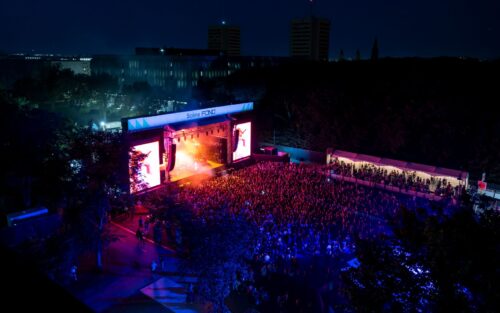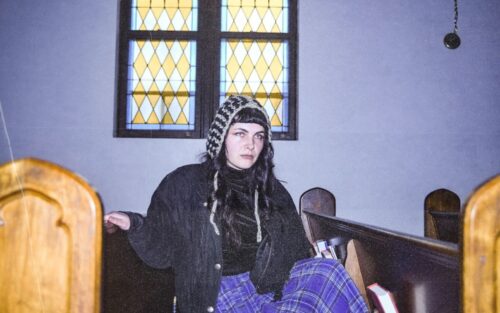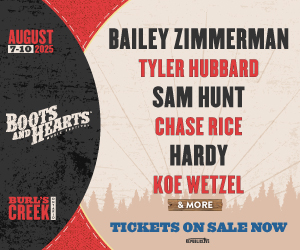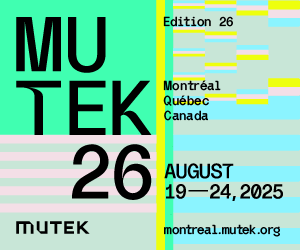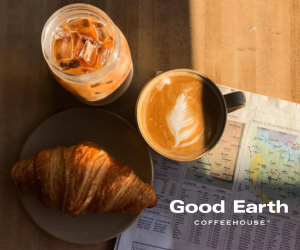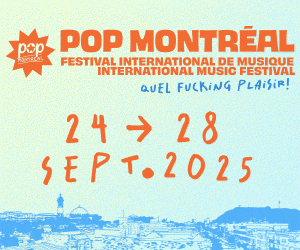Dead Quiet’s Radical Catharsis
The Vancouver-based heavy rockers reflect on turbulent times from the other side of chaos.
By Gregory Adams
Photos by Milton Stille
- Published on
As Keegan puts it, there’s “bad shit” being dredged up on the album, and much of it from the first-person. But he genuinely can’t see himself presenting this in any other way. “It’s always really personal stuff; I find it hard to write lyrics that aren’t,” he explains. “It’s got to be this cathartic thing; it’s got to be real. If I don’t feel something, then I feel like a fraud.”
The past few years have been especially weird and heavy, as we all know. While Dead Quiet’s last album, Truth and Ruin, was delivered in the fall of 2020, IV was the one to fully feel the effects of the pandemic. Written-and-recorded after the onset of COVID-19, “Existential Dread” is a rumbling, mid-album behemoth where a baffled Keegan contends with extra-vocal anti-vaxx sentiment, the freedom convoy movement, and people trying to ram “Golden God” feelings of superiority down his throat. Though not entirely related, the song also somewhat hints at a division that had developed within Dead Quiet around that time: certain members backed out of a late 2020 gig at a Vancouver venue that enforced vaccine mandates, leaving Keegan and his remaining bandmates to temporarily forge forward with fill-in musicians.
“It was a frustrating time, because I wanted to be able to play shows with my band [and] it wasn’t happening,” the bandleader says, though he confesses those differences of opinion have since been pushed to the wayside along with the mandates and that caused them, not impacting the making of IV. “It’s obviously water under the bridge. I was just frustrated with the situation, not necessarily the individuals.”
On a personal level, Keegan was also having a tough time of things during the making of IV. The musician explains that he’d long been working in healthcare and harm reduction in Vancouver’s Downtown Eastside, but after eight years on the job — as the city’s opioid crisis only intensified — he became burnt out. Eventually, his own coping mechanisms began to take their toll. “My partying was getting a little out of hand, and I was super depressed,” he admits.
This is the backdrop to IV’s “High Roads,” a barreling bit of biker-style proto-metal probing at the singer’s feelings of being battered by life. While early on he describes himself as a lone wolf “face down in the gutter,” human connection rescues him by the song’s end. Keegan explains: “Basically, [“High Roads”] is about battling addiction, taking a break from drinking, and figuring some shit out. And, [through] meeting my current partner, coming out of the darkness. It’s got a bit of a silver lining, that song.”


Relief also arrived as Keegan bonded with his bandmates in Dead Quiet — lead guitarist Brock MacInnes, bassist Michael Grossnickle, keyboardist Michael Rosen, and drummer Jason Dana — and a clutch of album collaborators including guest vocalists Marin Patenaude and Becky Black, City & Colour slide guitarist Matt Kelly, and veteran producer Jesse Gander. This is felt the most on the closing track “Leave the Light On,” an emotional ballad about singing songs and spending time with our friends while we still can.
Keegan explains that the song is a tribute to his late friend Brenden Gunn, a Vancouver-area metal musician who passed away in 2019. Keegan had previously premiered the song solo at an acoustic open mic night hosted at roots-rustic Vancouver venue The Heatley, but was convinced to build it out with a little help from his friends. He concedes: “It ended up being better that way. It was okay on an acoustic guitar, but putting it together with the band made it that much more epic.”
After crossing troubled waters, Dead Quiet regrouped to make what Keegan feels is the act’s most ambitious effort yet. And while profoundly dark at times, the quintet had a blast making it. Take, for instance, the Thin Lizzy-like joie de vivre of MacInnes and Keegan’s guitarmonies on “No Gods, No Gold,” or the sonic levity afforded by the gothic synth fanfare and “yacht rock” soloing of the Type O Negative-inspired “Murder City” (“We were laughing the whole time, because it was ridiculous,” Keegan says of recording the latter).
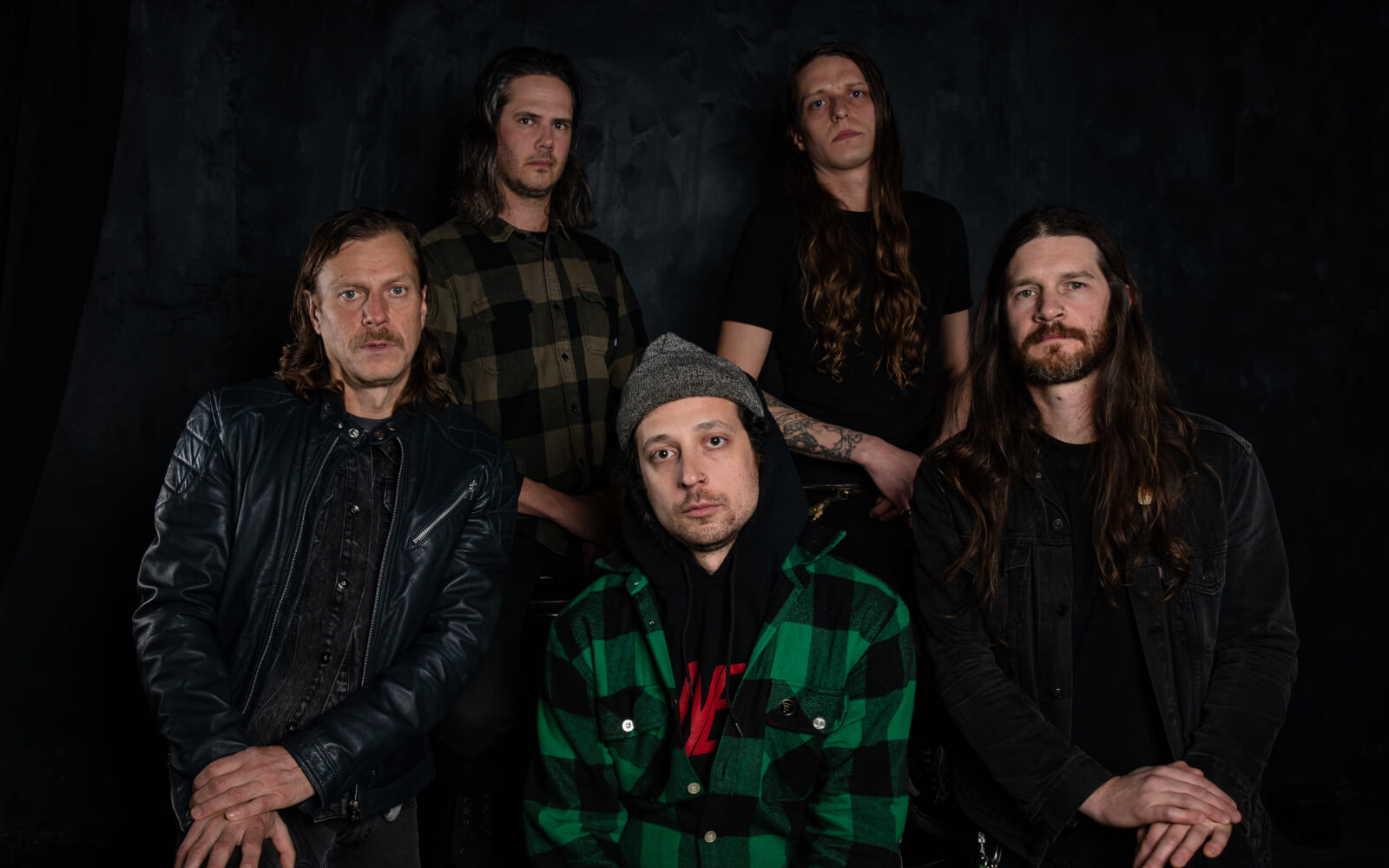
Keegan’s time away from the band likewise seems more chill these days. He’s since become a professional dog-walker, “gallivanting” in the woods with a bunch of pups each day. And while Dead Quiet are set to play a short stretch of Western Canadian tour dates around IV’s June 9 release, Keegan notes that the quintet are also easing into a more relaxed phase. In part, this is because bassist Grossnickle is ready to ramp up his activity with Juno-winning metal manglers Anciients, while keyboardist and new dad Rosen is taking time off from the touring circuit to focus on his family. As for Keegan, he’s “happily down to be a weekend warrior.”
Though they’re scaling down on stage time, IV is a big-time statement for the long-running Dead Quiet. And while Keegan says the title is more functional than anything, it’s hard to resist contemplating the collection’s arrival in the wake of a similarly-named pantheon of hard rockin’ classics, including Led Zeppelin IV (a.k.a. Zoso), Black Sabbath’s Vol. 4, or even the monolithic stonerisms of Black Mountain’s IV.
“It just happens [to be] that IV is the most common number for an album [title] — people are making Zeppelin jokes and shit,” the Dead Quiet founder quips, somewhat underplaying the title, as well as his outfit’s latest effort. “I’d hate for people to ever think ‘Oh, they named it IV because they think it’s that fucking good.’ No, that’s not why but I do think this is the best Dead Quiet album, by far.”
By Hannah Harlacher
Charlie Puth, Charlotte Cardin, Galantis to headline Quebec City’s end of summer party.
By Stephan Boissonneault
Cassandra Angheluta embraces trauma and transformation on her debut album, There’s A Shadow In My Room And It Isn’t Mine.


